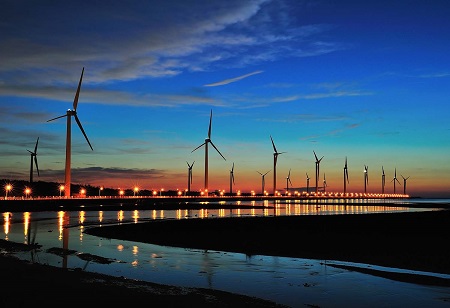Singapore started importing renewable energy from Laos through Thailand and Malaysia on Thursday, after an initial two-year power purchase agreement was signed between Keppel Electric and Laos' state-owned Electricite du Laos (EDL).
The Lao PDR-Thailand-Malaysia-Singapore Power Integration Project (LTMS-PIP) will import up to 100 megawatts (MW) of renewable hydropower using existing interconnections, marking the first multilateral cross-border electricity trade involving four ASEAN countries.
This is equivalent to about 1.5 per cent of Singapore's peak electricity demand in 2020, enough to power about 144,000 four-room HDB flats for a year.
This is also the first renewable energy import into Singapore, said Keppel Electric, EDL, the Laotian Ministry of Energy and Mines and the Energy Market Authority (EMA) in a joint news release.
The project will benefit all four countries involved by facilitating the development of a regional market for electricity trading, promoting investments, and enhancing regional electricity supply security and cost-competitiveness, the agencies said.
It will also contribute to Singapore's sustainability goals under its Green Plan 2030 by tapping on the abundance of renewable energy from the region.
Singapore's sustainable energy goals include decarbonising its power sector and diversifying its energy supply sources to enhance security.
The LTMS-PIP serves as a "pathfinder" towards realising the broader vision of an ASEAN power grid (APG), the agencies said.
An APG would enable multilateral electricity trading beyond neighbouring countries in the region. It is "a key regional initiative to enhance interconnectivity, energy security and sustainability through existing electricity interconnections", the joint statement added.
"This provides opportunities to tap on low-carbon and renewable energy sources in the region and contributes towards economic development and improving energy security and stability."
The LTMS-PIP is one of the trials that the EMA has been working on as part of the nation's goal to import up to four gigawatts of low-carbon electricity by 2035, which will make up about 30 per cent of Singapore's electricity supply in that year.
Keppel Electric is the first entity to be issued an electricity importer licence by EMA.
"The commencement of electricity imports from Lao PDR marks a significant milestone in our regional energy cooperation. The LTMS-PIP is a key project to advance multilateral power trade in Southeast Asia and complements existing efforts towards realising the ASEAN Power Grid vision," said Ngiam Shih Chun, chief executive of the EMA.
"Interconnected power grids can accelerate the deployment of renewable energy, promote supply diversification and strengthen grid stability for the region as a whole. We would like to thank our regional partners for their strong support and close collaboration in moving towards a cleaner energy future for the region."
The project also demonstrates the feasibility of multilateral power collaboration, as technical, commercial, legal and regulatory arrangements were finalised among various parties, with the support from the governments of the four ASEAN countries, the joint statement said.
Keppel Electric and EdL will continue to work closely with the Electricity Generating Authority of Thailand and Malaysia's Tenaga Nasional Berhad for the successful implementation of the power supply, it added.
Laotian Minister for Energy and Mines Daovong Phonekeo said that Laos sees itself as a major supporter of renewable energy in the region.
"We continually support the ASEAN Economic Community, Greater Mekong Subregion, and ASEAN Power Grid implementation and this project proves that we are on the right track as we promote the development of clean energy resources including solar and wind power."
The LTMS-PIP started in 2014 during the ASEAN Energy Track to complement the ASEAN Economic Community and ASEAN Power Grid to interconnect the region for energy security and stability, managing director of EDL Chanthaboun Soukaloun said.
"We believe this project is just the beginning of a new era where distance is no longer an obstacle but a challenge that can push our potential to the next level."
Keppel and EDL are also collaborating on the establishment of renewable energy tracking, verification and assurance through Renewable Energy Certificates and other long-term renewable electricity supply.
